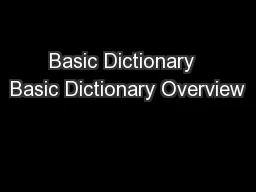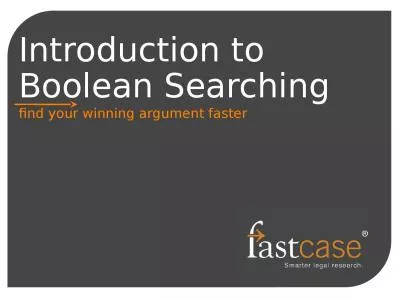PPT-Basic Legal Search Using Fastcase
Author : kittie-lecroy | Published Date : 2018-09-16
By Erin Page So what is a database A database is a collection of information with features that allow a user to organize and see connections that would not otherwise
Presentation Embed Code
Download Presentation
Download Presentation The PPT/PDF document "Basic Legal Search Using Fastcase" is the property of its rightful owner. Permission is granted to download and print the materials on this website for personal, non-commercial use only, and to display it on your personal computer provided you do not modify the materials and that you retain all copyright notices contained in the materials. By downloading content from our website, you accept the terms of this agreement.
Basic Legal Search Using Fastcase: Transcript
Download Rules Of Document
"Basic Legal Search Using Fastcase"The content belongs to its owner. You may download and print it for personal use, without modification, and keep all copyright notices. By downloading, you agree to these terms.
Related Documents













![get [PDF] Download Legal Vocabulary In Use: Master 600+ Essential Legal Terms And Phrases](https://thumbs.docslides.com/1019707/get-pdf-download-legal-vocabulary-in-use-master-600-essential-legal-terms-and-phrases.jpg)
